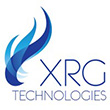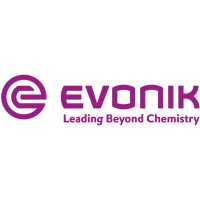-
Purification solutions for the Gas Processing industry
Johnson Matthey’s PURASPECTM absorbents are the industry choice for longest bed life and toughest duties. PURASPEC technology utilises metal oxides specially engineered into robust granules to remove traces of contaminants from hydrocarbon gases and liquids. In particular, the absorbents are designed to remove mercury and a range of sulphur compounds – most frequently hydrogen sulphide (H2S) and carbonyl sulphide (COS). They are widely used for natural gas sweetening to meet ...
-
High speed data networks, cloud-based systems and advanced data techniques are leading a distinct change in the way industries monitor and optimize operating assets. Refineries that will adopt realtime unit monitoring tools incorporating on-demand, advanced modelling of process performance will see an immediate marketplace advantage. Axens’ Connect’In™ addresses these challenges and is leading the breakthrough to substantially improve the efficiency of refineries. ...
-
Optimise crude processing with the Profiler™
The Challenge: Refiners aim to optimise feedstock blends to improve margins, but variability can bring significant operational challenges during the process. One critical need is the efficient removal of solids, salts and water from crude feedstock. It is essential that washing of the crude is effective at removing high levels of these, and the oilcan be efficiently separated prior to crude distillation. Efficient separation needs accurate and reliable interface control to manage ...
-
For many refiners, heater coking in Crude and Vacuum Distillation Units (CDU/VDUs) is a common occurrence. Many units around the world are shut down every two years, every year, or even every six months to deal with chronic heater coking. However, with the right design features driven by a solid understanding of heater coking mechanisms, fired heater run length can be extended beyond five years, even with relatively challenging crudes. The two primary drivers of heater tube ...
-
Top of Side Entry? Your Choice
The capacity of LNG plants has significantly increased over the years and geopolitical conflicts will likely push the market to new Liquefaction facilities, carriers, LNG terminals and regasification units. Valves are a critical component at each stage. Valve performance and reliability are vital to the whole process. The unique design, high quality manufacturing and material selection of Zwick Armaturen makes them ideal for LNG installations and other Cryogenic applications.
-
FracSENS LB 6770 Density Meter
The FracSENS LB 6770 nuclear density meter can connect directly to the control system. Without the transmitter unit, the outputted count rate can be used in the control system to calculate PPA, PPG, or SGU in both low and high pressure applications. The new scintillation technology ensures high sensitivity and allows drastic reduction of source activity compared to conventional ion chamber detectors. A maximum of 20 mCi has proven sufficinet for traditional fracturing applications. With ...
-
Optimised Pressure Swing Adsorption
Pressure Swing Adsorption (PSA) is a well-established gas separation process in hydrogen purification, helium purification and air separation among others. In addition to engineering, the adsorbents selected and employed in the PSA process are extremely important in determining the performance of a PSA unit. Loading Diagram There are a significant number of contaminants that require removal from a standard gas stream. Different layers of adsorbents are commonly used to remove ...
-
Processing heavy Canadian crude
Reducing crude oil cost is the major incentive driving crude and vacuum unit projects to handle heavy Canadian crudes. But such crudes–Albian Heavy, Christina Lake, MacKay River and others derived from oil sands–today present refiners with a unique set of problems not just because of extra-low API gravity, but also because of asphaltenes, vanadium and nickel, high solids content and extremely high viscosity vacuum residues. To process such crudes reliably over a 4-5 ...
-
NAPFINING™ Naphthenic acid removal
NAPFINING™ technologies were first licensed in 1977 and to date Merichem has granted 78 unit operating licenses world-wide. The non-dispersive FIBER FILM® Contactor achieves reduced capital expenditure and less plant space requirements compared to most treating alternatives, making NAPFINING™ and NAPFINING™ HiTAN the technologies-of-choice. In addition, onstream factor between routine turnarounds is 100% whereas electrostatic precipitators (ESPs) are much ...
-
Gain 5-10% efficiency with this simple 4-pass tray revamp
The design of 4-pass trays can be complex. It not only requires a close evaluation of the mechanical design but also the process response to that design at various flow rates. The balancing of the fluid flows across the tray can have a substantial effect on the tray performance, namely efficiency. Many existing columns are operating with older 4-pass designs. While some of these are well designed, others could use some improvement. Since 4-pass trays always involve a fairly ...
-
CO2 reduction in fried equipment
Fired heaters emit millions of tons of carbon dioxide (CO2) every year. Fired heaters usually have a fuel efficiency well below 100%, so any improvements that making them more efficient reduces CO2. Heaters are currently fuelled by carbon-bearing refinery fuel gas or natural gas, so further CO2 reduction is possible by changing to fuels with less carbon content. With the ever-changing regulatory climate, enacting an emissions reduction plan can provide a strategic advantage ...
-
Three cost effective ways to strengthen trays against uplift
Several common operating conditions cause tray damage, including high liquid levels, free water flashing at the bottom of the column, and excessive pressure drop. The result can be an expensive shutdown causing lost production and profit. Increasing tray thickness can be a first approach for strengthening the tray, but this can increase the material cost of the trays by 50% or more. Sulzer commonly uses three simple cost effective alternatives to increase tray strength in new ...
-
Topsoe refinery Research & Development
Providing refiners with the best catalysts on the market would be impossible without the innovative ideas from Topsoe R&D. Combined with the knowledge obtained from our pilot plant units, catalyst development is essential to providing high-performing, customized solutions. Topsoe’s research facilities in Denmark have more than 50 hydroprocessing pilot plant units with more than 100 catalytic reactors for catalyst screening and process studies, including dedicated ...
-
New digital tools to improve operational profitability in refineries
View this webinar to learn how you can leverage new digital tools as part of the Honeywell UOP upgraded PremierPLUS Performance Services offering to avoid unplanned downtime, optimize process performance, manage personnel changes, and reduce energy and emissions. The PremierPLUS Performance Services offering addresses these challenges and can improve operational profitability by an average of $1M to $5M per year. Attending this webinar will give you an overview of Honeywell ...
-
Maximizing renewable diesel and sustainable aviation fuel yields with ISOTERRA Technology
Investments in renewable diesel (RD) and sustainable aviation fuel (SAF) production are gaining considerable momentum and are expected to play a vital role in reducing carbon emissions for heavy-duty transportation. Currently, the majority of these projects focus on the production of HEFA (Hydroprocessed Esters and Fatty Acids). Chevron Lummus Global combines the renewable processing catalyst experience and technology of ART's ENDEAVOR™ catalyst system, CLG's hydroprocessing ...
-
Enabling energy transitions with the Callidus® Ultra Blue® Burner System
Join this webinar to learn how your renewable energy and net zero operations can dramatically lower nitric oxide (NOx) emissions with the Honeywell Callidus Ultra-Blue Burner system. Fuels are changing in order to meet corporate commitments to carbon reduction and net zero goals. As your operations use more hydrogen and renewable fuels, production of nitric oxide is increasingly scrutinized in both external regulations and internal emissions targets. Attending this webinar ...
-
Excel® Technology: The Sustainable Solution for HydroProcessing Catalysts
Unveil the path to sustainable catalyst processes with Excel® Rejuvenation Technology! Join us as we delve into the art of catalyst rejuvenation, uncovering the means to propel your processes towards enhanced sustainability and waste reduction. Learn how to steer your operations away from wasteful practices and embrace sustainability using Evonik's Excel® Hydroprocessing Catalysts solutions. Our certified Life Cycle Assessment (LCA) lays bare the potential emissions you can ...
-
Developments and solutions for renewable fuels testing
Regions and nations around the world are swiftly translating their climate targets into investments in renewable energy and fuel production. This necessitates a multifaceted approach and innovative solutions. Join us for this webinar as we report on the latest developments in the renewable fuels industry, with a particular focus on the transportation sector. We will discuss a range of renewable fuels, including SAF, ethanol, biodiesel, hydrogen, and their derivatives, while exploring ...
-
Structured Catalyst for Steam Methane Reforming
Join this webinar to learn about the benefits of ZoneFlow Structured Catalyst for Steam Methane Reforming. Honeywell UOP and ZoneFlow Reactor Technologies recently conducted pilot plant testing of the ZoneFlow Structured Catalyst in a large-scale pilot plant at Université Catholique de Louvain in Louvain-la-Neuve, Belgium. In this free webinar, you will have the opportunity to learn about the technology and benefits that were seen in the pilot test run at near-commercial levels: • ...
-
Improved H2 purification and recovery with UOP Polybed™ Pressure Swing Adsorption
Pressure Swing Adsorption (PSA) is the industry standard for H2 purification and long-term, reliable recovery. Honeywell UOP’s PSA technology is relied on by refineries and hydrogen producers worldwide, with more than 1,100 systems installed in over 70 countries. In this webinar, you will have the opportunity to gain valuable insights: - Understand what makes Honeywell UOP Polybed™ PSA purification technology unique. - Learn about recent changes in Honeywell UOP’s ...
-
Fundamentals of Safe Liquid Grab Sampling
Every day, grab (or spot) sampling systems allow oil, gas, and chemical companies around the world to simply and accurately determine the quality and composition of the fluids they process. In many cases, however, opportunities remain to improve the ease-of-use, safety, and maintenance requirements of these system by rethinking aspects of their design. In the case of panels that draw liquid samples into laboratory bottles, changes to valve assembly designs, specifically, can yield ...
-
Economics of Decarbonisation with Honeywell Sustainability Portfolio and IRA
The Inflation Reduction Act (IRA), passed by the US government on August 16, 2022, provides nearly $370B in clean energy and climate funding over the next decade There has never been a better time to invest in a more sustainable future. Our upcoming webinar will provide valuable insights into key IRA provisions and enabling technologies to accelerate industrial decarbonisation and achieve your long-term financial and sustainability goals. This webinar will offer an incredible ...
-
Applying Crude to Chemicals technologies for effective petrochemicals production
With the consumption of petrochemicals increasing globally and the demand for transportation fuels under pressure from energy transition initiatives, refiners are being driven to optimize their facilities and explore revenue streams outside of the traditional transportation fuel value chains. There are several alternatives and methodologies to capture additional value from crude oil through conversion into petrochemicals to consider. This webcast covers: - How to convert a ...
-
A new perspective on improving process and operational efficiencies
Presented with ageing equipment and ever-increasing environmental restrictions, process engineers are challenged with maximizing efficiency and mitigating problems. Without the necessary information, facing this challenge can be difficult or impossible. Tracerco provides you with the insights you need to help troubleshoot production problems and optimise processes. With the widest range of scanning and tracer diagnostic services on the market, Tracerco helps the refining and ...
-
A complementary and holistic approach using mobile water solutions
High water quality across petroleum refining and petrochemical industries is an integral part of every process, including cooling tower make-up and blowdown, desalination, filtration. Additionally, these industries unavoidably generate large volumes of wastewater. The growing demand combined with the increasing water stress and stricter regulations is creating a situation where water is becoming not only costlier but also a more valuable resource. This is leading companies ...
-
Preparing for a petrochemical plant revamp or technology upgrade
Petrochemical producers have recently confronted unprecedented volatility in crude oil prices and limits on advantaged feedstock, while the refining and gas sectors remain vigilant to global supply conditions. However, some industry challenges remain unchanged, such as the need to optimize plant operations and cut carbon footprint by reducing the amount of energy required to drive a plant. Equipment nearing the end of its operational life can not only put plants at risk of ...

































